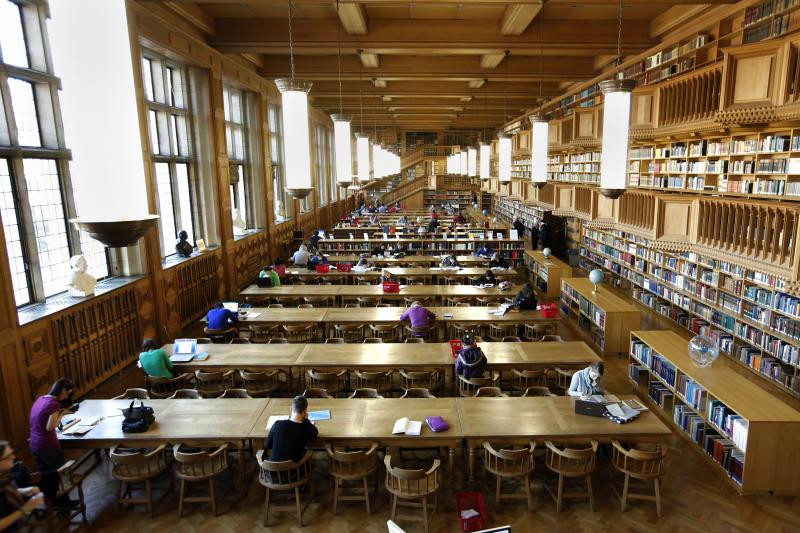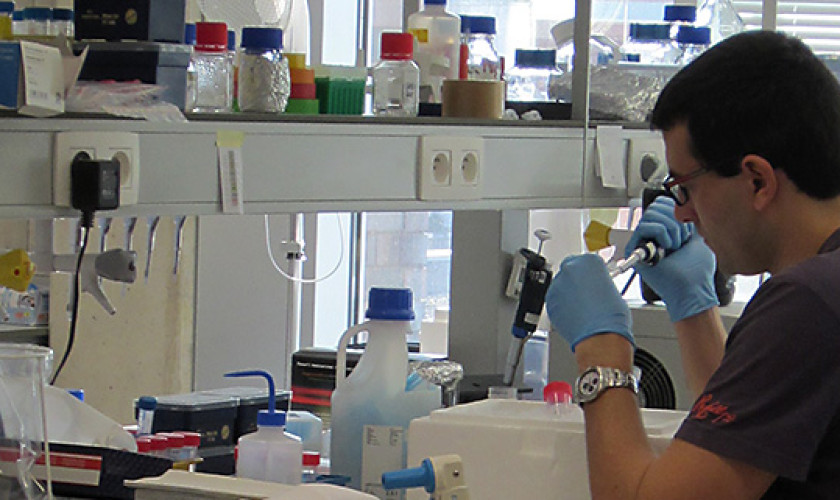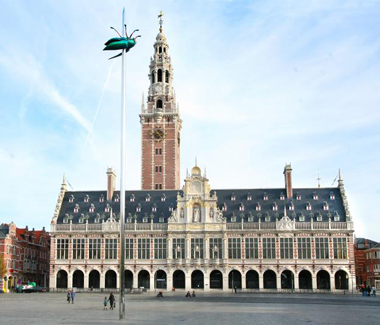Today, KU Leuven is ranked 45th in the world by the Times Higher Education academic rankings (2020) making it Belgium’s highest-ranked university as well as one of the oldest and most renowned research universities in Europe. Europe’s most innovative university offers a truly international experience, high-quality education, world-class research, and cutting-edge innovation.
Study in the heart of Europe
As a student or researcher at KU Leuven you are in the heart of Europe. London, Paris and Amsterdam are only a proverbial stone’s throw away which make it an ideal base for exploring the rest of Europe.
KU Leuven accommodates more than 59,000 students, spread across 14 campuses in Leuven and elsewhere in Flanders. The city Leuven, where its main campus is situated, is bustling with student life. Unlike most university towns, it does not have a closed campus. The university buildings are spread all over town. Numerous old colleges and residence halls give Leuven the stylish face of a university town with a tradition.
At KU Leuven, you will be part of a vibrant community of international students, with 16% of the university’s students coming from outside of Belgium. You can become part of one of the many international student associations at the University or participate in one of the multiple initiatives to ease your integration with the local community, such as the orientation days and the buddy programme.
Specific Research Opportunities
KU Leuven provides a stimulating home for all types of research, from fundamental to applied, and from individual research projects to large-scale, international research consortia based on 9 key area’s:
- Human health
- Medical technologies
- Bio-sciences & environment
- Matter, materials & energy
- Nature unlimited
- Manufacturing & ICT
- Arts, religion & culture
- Economy, law & society
- Human behavior
At KU Leuven, knowledge is transferred through high quality interdisciplinary teaching. Study programs pay special attention to the integration of professional training into a broad ethical, cultural and social context of education. Rather than passing on mere factual knowledge, students are encouraged to develop their skills to identify, formulate and solve problems. Thus, the necessary conditions for a stimulating educational experience are created. Special attention is paid to the steady evaluation of the teaching process in order to enhance the students’ capacity to study independently, to provide intensive individual guidance and an adequate evaluation system, and to make sure that the teaching staff has excellent didactic qualities, making use of new teaching methods and technologies.
In addition, KU Leuven concentrates on the training of young researchers, mainly within the context of their doctoral studies. The university also offers postgraduate programs in several fields.

Language and Culture
- Dutch as a foreign language (6 ECTS, both terms)
- The Low Countries at the Crossroads of European History (6 ECTS, Spring term)
- The Low Countries at the Crossroads of European History (6ECTS, Fall term)
The Language courses are offered by the Language Institute (ILT). This institute is linked to the university. Grades obtained for these courses are added on the official transcript of KU Leuven.
The elective courses and cultural courses are offered by KU Leuven.
The aim of the course “The Low Countries at the Crossroads of European History” is to offer students a critical overview of the history of the Benelux countries and to offer a comparative approach for the study of small territories in a wider European context. It also aims to challenge students to rethink such notions as cultural heritage, national pride and historical memory.
The emphasis in this course is on the emotions which people experience with respect to their country, its history and culture. The complex history of the Low Countries, with its different nations, its many links to the wider European world and beyond, and its traditions of economic success and cultural excellence, provides a good example of the range of issues on which human emotions focus and in this way shape history. From the civic pride in the medieval cities, over the rifts caused by the Dutch revolt, to the issue of regional identities in a unifying Europe, the course of Low Countries history is followed chronologically.
Special attention is given to the history prior to the twentieth century and the many ways in which this history has shaped contemporary society and has left numerous traces in the country and the minds of the people. For the recent history, emphasis is on the constantly shifting meanings of people's historical memories under the influence of such issues as nationalism and regionalism, wartime experiences, migrations in the modern world etc. In this sense the course opens the debate on the specific position of small countries in larger political zones.


